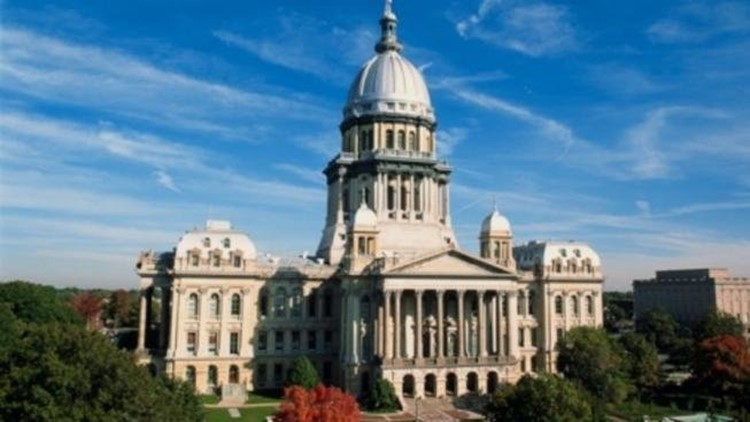SPRINGFIELD (Illinois News Network) — Assistant Majority Leader Don Harmon has filed an amendment to ask voters to change the state’s constitution to allow for a progressive tax system, but the bill provides no details about what that structure would look like.
Harmon’s bill would allow for the state to impose higher income tax rates on those who earn more, but is devoid of detail. It “provides that the income tax may be a fair tax where lower rates apply to lower income levels and higher rates apply to higher income levels,” according to a synopsis of the legislation.
Gov. J.B. Pritzker has pledged to change the state’s flat income tax to a graduated one, but he has avoided talking about specifics such as tax rates. He’s said that the rates would be negotiated with the legislature.
Pritzker has repeatedly said a progressive structure would require people like him (a billionaire) and former Gov. Bruce Rauner (a multimillionaire) to pay more. During a debate in October, Pritzker said a teacher in Peoria with an average salary of $51,481 should get a tax break. While some call it a progressive, or a graduated, tax, Pritzker and other Democrats have taken to calling it a “fair tax.”
Lawmakers would be able to change the income tax rates more easily if the rates aren’t written into the state’s charter. A progressive structure could also make it less painful to raise rates, by targeting those who earn more money rather than all residents who have income.
Voters must first approve a constitutional amendment at the polls before a progressive tax structure can be put into place.
Republican lawmakers oppose changing the state’s income tax system to a progressive one.
“The progressive income tax, the linchpin of the Pritzker plan, wouldn’t hurt the wealthy a lot – they easily can move out of Illinois,” state Rep. David McSweeney, R-Barrington Hills, wrote in an op-ed published last week at ILNews.org. “It would harm the middle class. There is a reason we do not see a tax rate schedule from those supporting the progressive income tax. They do not want voters to see exactly who the progressive income tax will affect. Do you really trust Illinois career politicians to set your tax rates?”
Voters would have to approve any constitutional amendment.
State Rep. Jay Hoffmank, D-Swansea, said he expected more debate on the graduated income tax in the coming months.
“I do see the fair tax proposal being put out this year and debated probably in the House and Senate,” he said.
Hoffman said the graduated structure would make “sure that people who make over a million dollars a year pay their fair share and it would actually be a cut to middle income earners.”
State Sen. Dan McConchie, R-Hawthorn Woods, has said people need to know the rates of a progressive tax for different income levels to have an informed debate about it.



